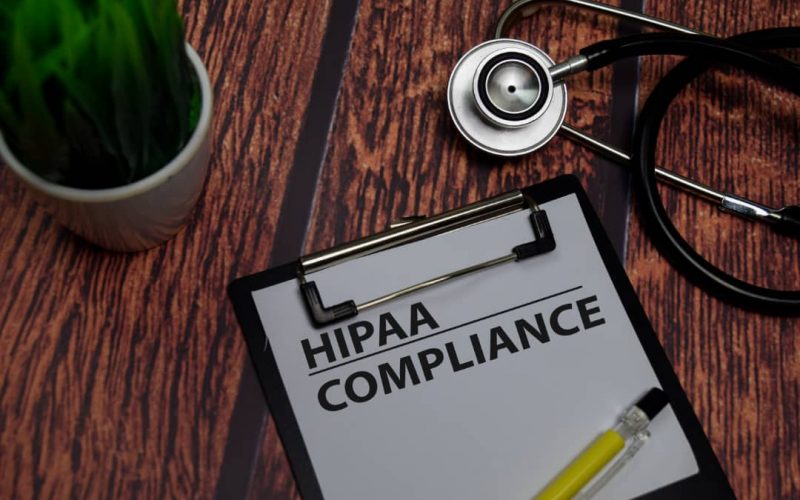Typically, when your business operations involve the use, transmission, and storage of health and other medical records, then your organization needs to meet the requirements for HIPAA (Health Insurance Portability and Accountability Act) compliance. By definition, HIPAA compliance refers to the adherence to certain regulatory standards for the safe and secure use and disclosure of protected health information by the covered entities and business associates.
Thus, if your business is governed by the HIPAA rules and policies, you need to be compliant with the said federal regulation to save your organization from major trouble. In short, you have to ensure that all health information your business handles is safe and protected from cybersecurity risks.
Keep reading this article to learn how to make sure your business remains HIPAA-compliant.
#1. Set Your Privacy Policy Out Clearly
As mentioned, violating the HIPAA rules and regulations could result in the payment of hefty fines and penalties. Not only that, but it can also put your business in a bad light. Because of this, it’s crucial to develop a clear privacy policy to ensure compliance with the said federal regulation. For example, you can make a policy about not selling protected health information to anyone, including third parties, or prohibiting the transmission of confidential information using an unsecured source.
Remember, when you have a clear privacy policy in place, you can expect strict adherence from your employees, which makes sure you remain a HIPAA-compliant business entity in your state.
#2. Educate Employees About HIPAA compliance
Educating your employees about it can also be an excellent idea to ensure compliance with HIPAA. You can do this by implementing annual training about security awareness and other safety-related topics for all your workers with access to protected health information.
When you have these training sessions in place, your organization can make sure your employees are reminded about how they should use, share, and store protected health information. Also, by conducting training, they can be updated with the new protocols, processes, and policies that can be used to remain compliant with the HIPAA rules and regulations.
#3. Use The Right Software
Since most protected health information is stored electronically, your business needs to invest in the right software technology to remain HIPAA-compliant. Typically, compliance with this federal regulation means keeping all sensitive information confidential and safe against cyberattacks and data breaches.
If the information is kept without security safeguards, there’s an increased risk of having it stolen by unauthorized persons. When this happens, you’d more likely put your business in great danger by paying fines and other penalties. For this reason, it’s best to use the right software based on your business needs. Whether it’s a cloud program accredited by HIPAA or an in-house server, using them can ensure all the information is safe and secure against cybersecurity threats and other unauthorized access.
Moreover, if your business use web-facing applications to handle protected health information, you also have to make sure the one you choose comes with advanced security features. Check whether the design, development, and deployment of the applications are free from vulnerabilities that can threaten your security and compliance with the involved federal statute.
#4. Implement An Internal Auditing Process
Your organization also needs to develop and implement an internal auditing process to ensure HIPAA compliance. When you’re able to audit the level of effectiveness of your existing privacy and security policies, you will find out whether there are weak points in your system, and you’ll be able to take the necessary steps to address them. Also, it’s designed to provide you and your business with the necessary expertise, education, and support you need to keep your protected health information confidential and safe. However, in doing so, you need to ensure everything is documented to prove to the auditors and regulators you’re compliant.
Additionally, it’s important to remember that conducting an audit process plays an integral role in remaining compliant with the said federal statute. The more you audit your privacy and security policies, the more you have control over them, which can help ensure your business still satisfies the appropriate standards at all times.
#5. Work With A Team Of Professionals
Another way your business can remain compliant with the concerned federal regulation is to work with a team of professionals. Unless you’re an expert yourself, you probably need help from other individuals who are experienced in handling network security and privacy matters. These professionals can include:
Security Team:
You can hire a reliable security team who knows how to identify data breaches and cybersecurity attacks, as well as develop protocols if a breach is detected. Although it seems all right to strictly adhere to the HIPAA guidelines, the expertise and skills of an experienced security team can give you peace of mind, knowing you have people who monitor the network security and privacy of all sensitive information in your organization. Aside from the general data protection strategies you know, including the use of encryption and data backup and recovery, you can guarantee HIPAA compliance by hiring a security team that offers specialized security features, like federated authentication.
External IT (Information Technology) Auditor:
You can also work with an external IT auditor to help your internal IT department with the implementation of initial risk analysis and other aspects of cybersecurity compliance, such as policies and procedures and vulnerability scans.
Attorney Specializing In HIPAA Compliance:
Your business can also benefit from having an attorney who handles cases about HIPAA compliance. They can help you by providing valuable legal advice, audit assistance, and guidance about potential risks and exposures.
Final Thoughts
Indeed, given the increasing number of cyber threats nowadays, keeping your organization safe with the help of HIPAA compliance has become more important. However, if you think your business finds it difficult to remain HIPAA-compliant, keep the ways mentioned above in mind, and you’re good to go. The more you know what it takes to optimize your compliance efforts, the more you can prevent other people and entities from threatening your business. Remember, staying compliant with the rules and regulations of the said statute can help boost your organization’s reputation in the long run






